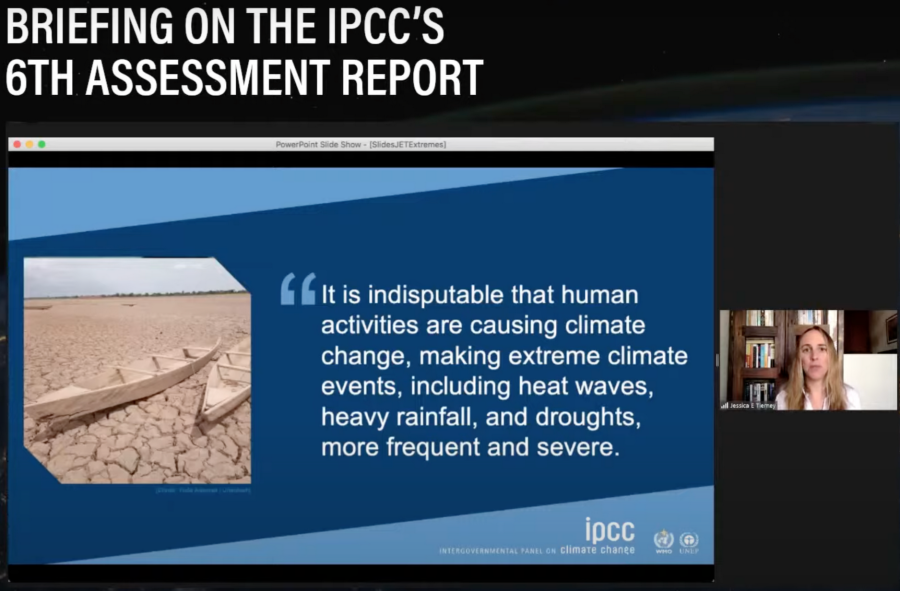Jessica Tierney, an associate professor in the Department of Geosciences at the University of Arizona, presented research over Zoom to members of Congress on Wednesday, Sept. 1, regarding how human activity has led to climate change.
At the UA, Tierney studies geochemical records to understand the climate’s future by looking at trends over thousands of years of past data.
Tierney is also a member of the Intergovernmental Panel on Climate Change. She and three colleagues each had five minutes to brief Congress on research conducted proving that human activity has caused climate change.
During the briefing, Tierney explained how the environment is interconnected and the impact of climate change on extreme natural disasters.
Western North America has been experiencing a megadrought since 2000. This is the second worst in the last 1,000 years, according to Tierney. She said problems like heat waves and droughts are “personal for [her],” since she lives in Arizona and grew up in California.
This megadrought has direct effects on Arizona residents. For example, water supply from the Colorado River is cut from farmers in the state. Farmers expect to be completely cut off from the supply by 2023, according to an article published by The Arizona Republic.
Tierney discussed another problem plaguing Arizona: air quality.
Tierney argued that climate change and air quality go hand-in-hand, saying, “it is possible to tackle air pollution and climate change at the same time.”
The megadrought caused wildfires to erupt across the nation. Consequently, the fine particles from wildfire smoke coming from states like Oregon and California settle across the nation, impacting the air quality in Arizona and potentially making it dangerous for residents to breathe.
The Arizona Department of Environmental Quality said in a press release that high pollution “can increase the number and severity of asthma attacks, cause or aggravate bronchitis or other lung disease, and reduce the body’s ability to fight infection.”
In order to improve these problems, carbon emissions need to be reduced. Human-caused climate change drives these extreme weather events, according to Tierney.
“[These extremes] would be virtually impossible without climate change,” Tierney said.
The frequency of disasters has gone up with the increase of greenhouse gases. “Human-caused climate change increased the likelihood of fires eight-fold,” Tierney said. She also noted that the natural disasters happening are also more intense than before.
Without immediate change implemented by congress we may face irreversible consequences.
Another presenting member of IPCC, Robert Kopp, said, “there’s no going back from some changes in the climate system. However, some changes could be slower, and others could be stopped by limiting warming.”
Kopp said that if change does not happen, the climate could rise three to four degrees Celsius. While it does not sound like a large change, three to four degrees Celsius could increase the global mean sea level by two feet by the end of the century.
“Just this summer in the United States, we have pretty much seen every extreme manifest itself,” Tierney said.
To learn more or watch the briefing, visit the House website.
Follow Jane Florance on Twitter















